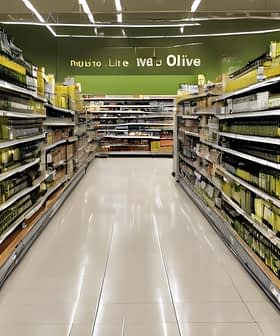Coronary artery disease (CAD) is the narrowing of the coronary arteries and frequently leads to angina, myocardial infarction, and heart failure.
The Mediterranean diet and olive oil consumption of an average two tablespoons per day have been attributed in studies as having beneficial effects for cardiovascular disease. Now more specifically, studies are showing some promising results for a protective effect against CAD.
A study published in Public Health Nutrition revealed that even after taking into account adherence to the Mediterranean diet, “exclusive olive oil consumption was associated with 37 percent lower likelihood of developing coronary artery disease.”
A case-controlled study conducted between 2006 – 2010, The Hellenic study of Interactions between Single Nucleotide Polymorphisms and Eating in Atherosclerosis Susceptibility (THISEAS), enrolled 1,221 participants with coronary artery disease and 1,344 controls.
The American Botanical Council reported on the THISEAS study, saying that, “The case patients had acute coronary syndrome or CAD with > 50% stenosis in at least 1 of the main coronary blood vessels.” The MedDiet score was used to assess adherence to the Mediterranean diet and olive oil consumption, with additional questionnaires reporting on fat consumption.
The 37 percent lower likelihood of developing CAD with exclusive olive oil consumption was thought to be “mediated through changes in oxidative stress, inflammation, lipid peroxidation, and lipid profile,’ the Council said.
Another study published in the Journal of Human Nutrition and Dietetics, the GREECS observational study, supported the results of the THISEAS study, showing that exclusive use of olive oil, used as either a salad dressing or in cooking, helps reduce incidence of acute coronary syndrome (ACS) and recurrent cardiac episodes in cardiac patients.
The study initially recruited 2,172 participants with ACS, acute myocardial infarction or unstable angina, and later performed a 10-year follow-up in 1,918 patients. Dietary components were recorded, including added fat intake of olive oil, butter, margarine and seed oils. The use of fats in daily cooking and food preparation was also recorded. Seventy-six percent of the group exclusively consumed olive oil, while the remaining 24 percent consumed other added fats.
According to the authors of the study, “The endpoints studied in the 10-year follow-up were recurrent fatal or nonfatal ACS events.”
Those consuming other added fats had a 40 percent higher risk of recurrent ACS events during the follow-up period. And, even though the MedDiet score was the same for both groups, those having acute myocardial infarction was only 58 percent in the exclusive olive oil group compared to 71 percent in the other added fats group.
However, this result only remained significant in obese patients. The authors suggesting that olive oil may reduce the low-grade inflammation that is well known to be associated with obesity. Whereas the other added fats “activate the mechanisms involved in the occurrence of thrombosis, inflammation and oxidation.”
Like most studies, there were some limitations, including reliance on a hypothesis of the mechanisms by which the positive effects are exerted, lack of measuring the level of myocardial damage, the exact amount of fat intake not being recorded, and the fact that dietary intake was only taken at baseline so potential dietary changes over time were not taken into consideration.
More research is still needed in this area but the results of both studies combined are promising, showing that the consumption of olive oil on a regular basis has a protective effect against coronary artery disease.
- Public Health Nutrition: Exclusive olive oil consumption has a protective effect on coronary artery disease; overview of the THISEAS study
- American Botanical Council
- Journal of Human Nutrition and Dietetics: Exclusive olive oil consumption and 10-year (2004 – 2014) acute coronary syndrome incidence among cardiac patients: the GREECS observational study








